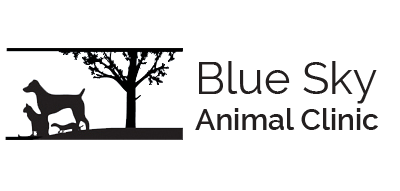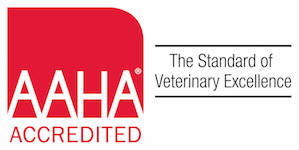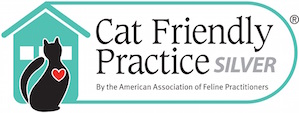COVID-19 Quick Facts for Petowners:
1) There is no current evidence pets can transmit COVID-19 infection to humans.
2) pets could be fomites (a object that can carry organisms from one suseptible person to another like clothes, utensils, Kleenex, furniture, etc).
3) Colorado Veterinary clinics have been asked to restrict nonessential surgeries for the next 3 weeks to conserve PPE (gloves and masks) for use in the fight against COVID-19.
Blue Sky is following this directive and will start scheduling elective surgeries and dental cleanings when the state permits it. For now, we are allowed to perform emergency procedures on patients who have injuries, possible cancer, are in pain, or may worsen without surgery.
4) Blue Sky is continuing to operate, but we are asking that clients not enter the building to allow for social distancing. We can meet you in the parking lot to get your pets history and escort them inside. Please have dogs leashed and cats in carriers.
5) Hand sanitizer is not toxic to animals and is NOT made from the same ingredients as antifreeze. A dog licking your hand after applying sanitizer will not cause any problems. If a dog ate an entire bottle of sanitizer they could act drunk and have alcohol poisoning, but due the unpleasant taste this is highly unlikely.
6) Please call or text us if you have questions during this difficult time. We want to take care of our cats and dogs while keeping everyone as safe as we can!
We’d like to share an update regarding COVID-19 and our pets. The World Health Organization confirmed last week that this virus does NOT infect our dogs. Furthermore, there’s no evidence to show that cats are at risk, either. This is obviously great news, but we still urge you to practice aggressive hygiene with frequent handwashing, even when cuddling your fur babies. While our pets can’t be infected, they can still serve as “fomites” for the disease, meaning they can physically carry the virus on their skin and fur, much in the same way that a door knob can carry the disease on its surface. The best defense against this disease is stringent hand washing and social distancing from others. Even if you are not an at-risk individual, please be diligent in these practices, as you have the potential to be a carrier (meaning infection without clinical signs) and a fomite.
As a reminder, the populations of greatest concern for contracting this virus are those who are elderly, immunocompromised or have existing medical conditions (ie. heart disease, Diabetes). So if social distancing is a huge part of your protection, then we want to play our part in protecting you. Like many veterinary clinics across the country, we’re still evolving our methods in handling this situation. We want to be there for your animals, especially when they’re sick, but we ask that you take some precautions when coming to visit us.
Please follow these guidelines when considering an office visit with us:
• If you are exhibiting signs of illness and your pet is healthy, please refrain from coming to the clinic for the time being.
• If you are exhibiting signs of illness and your pet is sick, please relay this information to us. We will come up with a game plan prior to your arrival to keep the potential for spread to a minimum.
• If you are an at-risk individual and your pet is healthy, we recommend refraining from coming to the clinic for the time being.
• If you are an at-risk individual and your pet is sick, please relay this information to us. Again, we can come up with a game plan to minimize contact and risk.
• We encourage you to avoid our waiting area as much as possible, especially if you are an at-risk individual. Feel free to wait in your car until an exam room is ready.
• Our exam rooms have sinks and soap, so please use these liberally while you’re in the clinic! We’ll be doing the same.
• Don’t be offended if we don’t shake your hand upon meeting you. It’s not personal J
• Please remember that you can use the online store if you need to get more medications or prescription food without coming in. Just visit: “blueskyclinic.vetsfirstchoice.com”
Please don’t hesitate to contact us if you have any questions or concerns. We want to work with you to keep everyone as safe as possible, while still maintaining the health of your pet. As we’ve already seen with the spread of this virus, things are subject to change, so we’re grateful for your flexibility as learn more and adjust our protocols accordingly.
Sincerely,
Blue Sky Animal Clinic
|
COVID-19 Safety Update We are still offering veterinary services but until further notice, our doors will be locked and we will be offering curbside service for all clients and patients. We are doing this to prevent the spread of COVID-19 and to protect the health of our clients and our team so that we may continue caring for your pets. If you are coming in for an appointment: Please call us upon your arrival and we will send a technician out to your vehicle.
Thank you so much for your flexibility and understanding. 970-663-6046
|
Understandably, there is a lot of concern about how COVID-19 (Coronavirus Disease 2019) specifically pertains to our pets. It is important to note that the term “coronavirus” refers to a large family of viruses and that the current outbreak refers to a specific strain identified as COVID-19. Coronaviruses are responsible for a range of illnesses from the common cold to more severe respiratory infections.
There has been a lot of focus in the media on the dog that tested a “weak positive” in Hong Kong after his owner was quarantined for infection with COVID-19. This dog has shown no symptoms of truly being infected with the virus. The current test does not differentiate between active infection, live virus or inactivated virus particles. The dog continues to be quarantined to monitor for signs of clinical disease (symptoms).
Although there is no evidence so far that pets can be infected, pets can still have virus particles on them (i.e. fur, nose) in the same way that anything in contact with an infected person could. The current recommendation is for persons infected with COVID-19 to limit close contact with their pet as you would with another human (i.e. avoid snuggling, being licked or kissed, sharing food). Here are some good hygienic tips:
Wash your hands often with soap and water for at least 20 seconds!
Avoid touching your eyes, nose, and mouth.
Avoid close contact with sick people.
Stay home when you are sick.
Cover your cough or sneeze with a tissue, and then throw it away.
Clean and disinfect frequently touched objects and surfaces.
Sources (and for more information): https://vetmed.illinois.edu/pet_column/coronavirus-pets/
https://www.who.int/…/novel-…/advice-for-public/myth-busters
Heartworm disease is a danger to any dog, anytime, anywhere—all it takes is 1 mosquito bite. Heartworm disease is found in all 50 states, and dogs need protection year-round. A single missed or delayed dose could put your dog at risk for deadly heartworm disease. With no monthly doses to remember, there are no gaps in protection. Proheart 12 injection is the only heartworm preventative that provides 12 months of protection in 1 dose. Proheart 6 (with 6 months of protection in 1 injection) is also available.
ProHeart 12 is effective & safe, it has been used in Australia for over 10 years. In a real-world studies, ProHeart 12:
-Was 100% effective against heartworm in dogs
-Was found to be safe for most types of dogs, including:
Reproducing dogs and their puppies,Collies sensitive to ivermectin—a common ingredient in monthly heartworm products
-Had a similar adverse event profile to Heartgard® Plus
With the Zoetis Rewards Program, it costs about the same as a year’s supply of Heartgard® Plus monthly chewables.
Check out this link for more information: https://www.zoetisus.com/…/ProHeart-12-Client-Information-S…
Lumps and Bumps!
You’ve probably noticed that many dogs (and occasionally cats) frequently have new growths that will sprout up on their skin. How concerning are these and what are the best steps for learning more? Let’s cover some FAQs in regards to these:
1) Why is my dog lumpy?
-The short answer is that we don’t know. The production of lumps and bumps is generally unrelated to diet, medications or other illnesses. Some breeds can be more predisposed to developing certain types of benign and cancerous tumors, but really any dog is capable of developing any type of mass.
2) Are all masses cancerous?
-Fortunately, no! There are many types of benign growths that exist. Some of these have very distinct looks that we can diagnose with a glance, such as papillomas (warts), sebaceous adenomas (glandular growths) and skin tags. Other types might require additional testing, but can still turn out to be benign. These include lipomas (fatty tumors), cysts, and other benign versions of tumors.
3) How can you tell if a mass is cancerous?
-Here’s the short answer: You CANNOT tell by looking at it alone (perhaps with the exception of most warts and skin tags). This is why we often recommend a needle aspirate to assess the types of cells present within a mass.
4) What are some signs that might indicate a more aggressive mass?
-Generally speaking, a fast-growing mass is a concerning mass. Anything that’s doubling in size in less than a month should be evaluated by a veterinarian. Masses that seem to be well-adhered to underlying muscle tissues (ie. non-moveable) or that feel particularly firm are also more frequently concerning. Size is not always a good indication of aggression, as many large masses can turn out to be benign and many small masses will end up being cancerous.
5) How does my veterinarian test the masses?
-The first step is in evaluating a mass is called aspiration, meaning we poke it with a needle to get a sample of cells. We then evaluate these cells under the microscope and determine whether the cellular contents are concerning. There are limitations with this process. For examples, it usually doesn’t tell us exactly what type of tumor is present or whether it’s malignant. But it can usually give us a good indication whether the mass needs to be evaluated further or removed altogether for biopsy.
6) What is biopsy?
– While the cellular aspirate is simply a needle poke that can be done during an office visit, the biopsy requires cutting a large section of the tumor out, or potentially removing the entire tumor altogether. Biopsy usually requires sedation or general anesthesia. It will also give a lot more information. We send these tissues out to a laboratory to evaluate them microscopically. A biospy will tell us what type of tumor it is and whether it’s cancerous. In the case of removing a mass, biopsy will also tell us whether we removed the entire tumor successfully, as some cancer cells can spread to the tissues surrounding the mass. We need to know whether any cancer cells were left behind so that we can decide whether further action is needed (ie. additional surgeries, radiation or chemotherapy).
7) Should every mass be removed?
-Not always. Benign masses are frequently left alone as long as they’re not causing discomfort, inflammation or mobility problems in the animal.
Bouquet are often gifted and received. We wanted to post an important reminder about the danger of lilies for our feline friends. Often, poinsettias get a bad rap for being risky for cats. However, cats that chew on or ingest poinsettia leaves develop mild stomach upset at worst. True lilies (Lilium sp. or Hemerocallis sp.) on the other hand pose a very serious health threat to cats. Chewing on the leaves, licking the plant, or even grooming pollen off of their fur can cause acute (sudden) kidney failure. True lilies include Daylilies and Asiatic lilies. There are other plants with “lily” in their name that are not true lilies and do not cause kidney failure (i.e. Calla lily, Peace lily).
Due to the severity of the toxicity with even the smallest of exposure, we recommend not having true lilies in your household if you own a cat. It’s important to note that the same toxicity does not result for dogs.
If you are at all concerned that your cat may have been exposed to a lily, take a picture of the plant and seek veterinary care immediately. Most cases that are caught immediately have positive outcomes with fluid support and hospitalization. Signs to monitor for include: poor appetite, vomiting, lethargy.
Please pass this along as it seems that many people are not aware of the risk lilies hold for cats. A 2011 study by the Animal Poison Control Center found that 73% of clients whose cats were exposed to lilies were unaware that the plant was toxic to cats. Keep those kitties safe!
Source: https://www.aspcapro.org/…/how-spot-which-lilies-are-danger…
Today about 70% of the cat population is described as primarily indoor only. Even with the best security and monitoring cats can easily slip out of the house and with 30% of the cat population living outdoor how can we tell the difference between a cat running the neighborhood to a cat taking a trip around the block without mom and dad knowing? An orange collar! The Kitty Convict Project have developed orange identification collars to let people know that if you see a cat roaming around and has a bright orange collar they may need some help. The article below describes the project and the following link is directly to the Kitty Convict Project.
If you see an orange collar on a cat outside please stop. You may need to call Animal Control to let them know an indoor cat may have gotten out of their house.
USA TODAY ARTICLE
https://www.google.com/amp/s/amp.usatoday.com/amp/76626994
Kitty Convict Project
https://explodingkittens.com/kittyconvict
Toxin ingestion by your family pet can be a stressful and worrisome experience but I want to walk you through a few things to do that can save their life.
Rat bait
We all know that rat/mice bait (like Decon bait blocks) are toxic to dogs and cats but what do you do if your pet ingests these substances? The most important thing to do: bring the box of bait to our office. There are three main types of rat poison and all three cause different symptoms therefore if we know what type it is we can better treat your pet. Also providing us a timeframe when the toxin was eaten helps determine treatment as well.
Chocolate
Main thing to remember for chocolate ingestion is: Darker chocolate=more cocoa=more toxic.
Bringing the container,bag,or ingredient list into the office can also very helpful. It is imperative to always call us after a chocolate ingestion but know there are other resources you can contact if desired including ASPCA Pet Poison Control (888) 426-4435 or even online you can access a chocolate toxicity calculator that can help you determine what symptoms to look for after ingestion. The link is attached below
https://www.petmd.com/dog/chocolate-toxicity
Understand that this calculator is only an estimate and does not replace bringing your pet in for us examine.
Raisins or Grapes
The most important thing to know about raisins or grapes is there is no known/researched minimal dosage that can cause renal (kidney) damage for pets. This being said any amount of grapes or raisins effects every animal differently. We all know that dog that has eaten grapes and has been fine but in my experience even one grape can cause kidney failure in a dog. What should we do then? Any grapes/raisins ingestion bring them in ASAP.
Things to remember
– Call us as soon as you think an ingestion has happened 970-663-6046
– Grab any containers or ingredient lists that include concentration of the toxin
– Understand that your pet will need to be dropped off for a period of time for treatment and observation
-Remain calm and we will work through this together



Recent Comments